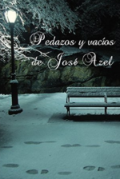Property rights, or the lack of them, are central to all contemporary political philosophies. Marxism rejects property rights outright, as explained by Karl Marx in the second chapter of his Communist Manifesto: “the theory of Communists may be summed up in a single phrase: Abolition of private property.
Even within the family of democratically grounded political beliefs — classical liberalism, social democracy, and christian democracy — the topic of property rights receives dramatically different interpretations. Let’s try to examine briefly this extremely complex topic.
Classical liberalism is unambiguous as to property rights, as articulated by John Locke, the 17th-century British political philosopher and father of classical liberalism:
"Every Man has a Property in his own Person … The Labour of his Body, and the Work of his Hands, we may say, are properly his. Whatsoever then he removes out of the State that Nature hath provided, and left in it, he hath mixed his Labour with, and joyned to it something that is his own, and thereby makes it his Property."
For Locke, property rights are a necessary implication of self-ownership. For example, if I take a sheet of paper that I own and fold it carefully so as to make a paper boat, that paper boat is properly mine. I have joined my labor with my sheet of paper, making the crafted paper boat my property.
Unceremoniously, I christen my paper boat “Liberty” and launch it to the pool. |
|
Social democrats see it differently. During the late 19th and early 20th centuries, social-democracy movements profoundly influenced by Marxism sought to replace private ownership with social ownership of the means of production.
In its current version, social democracy can be defined as a political ideology that advocates state-economic and social intervention (e.g., regulation of the economy, redistribution of income) within capitalism to foster social justice. Its end goal is to promote a peaceful evolutionary transition of society from capitalism to socialism using established political processes.
As social democrats see it, they can rightfully expropriate my paper boat in the name of social justice, because the boat is not rightfully my own. The sheet of paper that I used came from a tree that, in nature, is part of the common heritage of mankind, and therefore the byproduct is not properly mine. It belongs to us all.
Similarly, because I developed the labor and technology that I used — my paper-boat-making skills — while attending a public school financed by the community, social democrats argue that the paper boat, or a portion of it, belongs to the community.
On this topic, Christian democrats arrive at more or less the same conclusion, but from a different philosophical perspective. Christian democracy can trace its philosophical roots back to Thomas Aquinas, but emerged as a political movement at the end of the 19th century, influenced by Catholic social doctrine.
As Christian democrats see it, the paper boat is not mine alone. The sheet of paper I used came from a tree created by God and therefore belongs to us all. My paper-boat-making skills are a God-given gift, and God would want me to use his tree and the talents He gave me for the benefit of mankind.
While social and Christian democrats differ on many other dimensions, they agree on regulating market forces, social justice, and support for a welfare state. In Latin America, for example, while tending towards conservatism on social issues, Christian democrats ideologically join progressives on economic issues.
Both social and Christian democratic orthodoxies propose using the state’s coercive force to cut my paper boat so that, in the name of social justice, one part can be shared with the community. Although I am unpersuaded by their arguments that the boat is not really mine, I am given no choice.
I cut “Liberty” in half, but when I placed it back in the water, it promptly sank.
 |
|
We welcome your feedback.
Abrazos,
Lily & José
(click on the name to email Lily or Jose) |
|
| This article was originally published in English in the PanAm Post on November 23, 2015 and in El Nuevo Herald on November 3, 2015. |
|
|
|
|






No comments:
Post a Comment